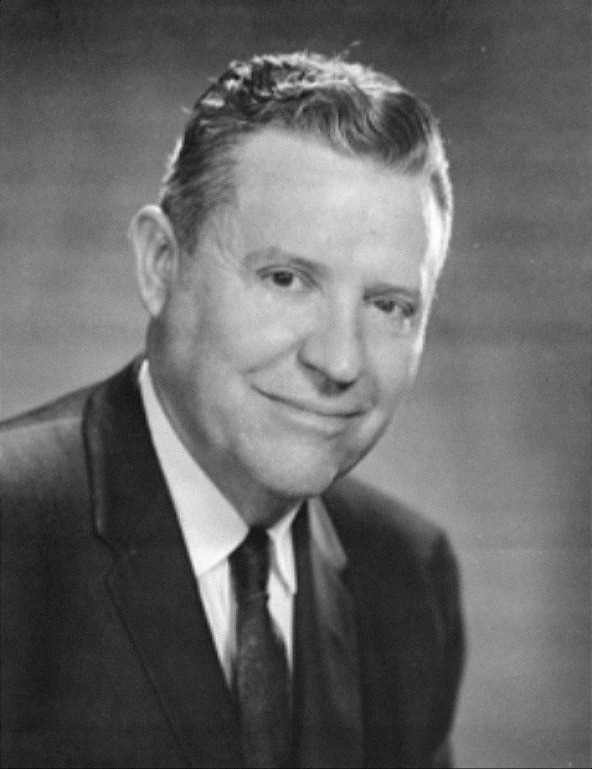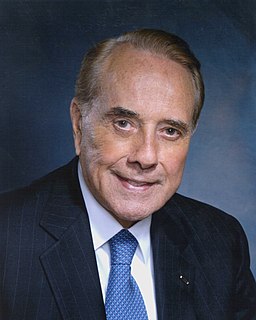Related Research Articles

The 1996 United States presidential election was the 53rd quadrennial presidential election, held on Tuesday, November 5, 1996. Incumbent Democratic President Bill Clinton defeated former Senate Majority Leader Bob Dole, the Republican nominee, and Ross Perot, the Reform Party nominee.

Ralph Webster Yarborough was an American politician and lawyer. He was a Texas Democratic politician who served in the United States Senate from 1957 to 1971 and was a leader of the progressive wing of his party. Along with Senate Majority Leader Lyndon B. Johnson and Speaker of the House Sam Rayburn, but unlike most Southern congressmen, Yarborough refused to support the 1956 Southern Manifesto, which called for resistance to the racial integration of schools and other public places. Yarborough voted in favor of the Civil Rights Acts of 1957, 1960, 1964, and 1968, as well as the 24th Amendment to the U.S. Constitution, the Voting Rights Act of 1965, and the confirmation of Thurgood Marshall to the U.S. Supreme Court. Yarborough was the only senator from a state that was part of the Confederacy to vote for all five bills.

Edward Glenn Bryant is an American politician who is a former Republican member of the United States House of Representatives from Tennessee (1995–2003). From 1991–1993, he served as the United States Attorney for the Western District of Tennessee. On December 12, 2008, Bryant was sworn in as a U.S. Magistrate Judge for the Western District of Tennessee. He retired from this position on February 28, 2019.

The 1996 United States Senate elections coincided with the presidential election of the same year, in which Democrat Bill Clinton was re-elected president.

The 1988 United States Senate elections was an election for the United States Senate in which, in spite of the Republican victory by George H. W. Bush in the presidential election, the Democrats gained a net of one seat in the Senate. Seven seats changed parties, with four incumbents being defeated. The Democratic majority in the Senate increased by one from 54–to–46 to 55–to–45. This is the last Senate election in which California voted for a Republican and both Texas and Maine voted for Democrats.

The 1986 United States Senate elections was an election for the United States Senate in the middle of Ronald Reagan's second presidential term. The Republicans had to defend an unusually large number of freshman Senate incumbents who had been elected on President Ronald Reagan's coattails in 1980. Democrats won a net of eight seats, defeating seven freshman incumbents, picking up two Republican-held open seats and regaining control of the Senate for the first time since January 1981. The party not controlling the presidency gained seats, as usually occurs in mid-term elections.

The 1984 United States Senate elections coincided with the landslide re-election of President Ronald Reagan in the presidential election. In spite of the lopsided presidential race, Reagan's Republican Party suffered a net loss of two Senate seats to the Democrats, although it retained control of the Senate and gained seats in the House.

The 1978 United States Senate elections in the middle of Democratic President Jimmy Carter's term. Thirteen seats changed hands between parties, resulting in a net gain of three seats for the Republicans. Democrats nevertheless retained a 58–41 majority.

The 2008 United States Senate elections were held on November 4, 2008, with 35 of the 100 seats in the Senate being contested. Thirty-three seats were up for regular elections; the winners were eligible to serve six-year terms from January 3, 2009 to January 3, 2015, as members of Class 2. There were also two special elections, the winners of those seats would finish the terms that ended January 3, 2013.

The 1970 United States Senate elections was an election for the United States Senate, taking place in the middle of Richard Nixon's first term as President. The Democrats lost a net of three seats, while the Republicans and the Conservative Party of New York picked up one net seat each, and former Democrat Harry F. Byrd Jr. was re-elected as an independent.

The United States Senate elections of 1966 were elections on November 8, 1966 for the United States Senate which occurred midway through the second term of President Lyndon B. Johnson. With divisions in the Democratic base over the Vietnam War, and with the traditional mid-term advantage of the party not holding the presidency, the Republicans took three Democratic seats. Despite Republican gains, the balance remained overwhelmingly in favor of the Democrats, who retained a 64–36 majority. These were also the first elections held after enactment of the Voting Rights Act of 1965.

Henry Cushing Grover, usually known as Hank Grover, was an American politician from the U.S. state of Texas best known for his relatively narrow defeat in 1972. He was a conservative Republican
Daniel C. Morales is an American politician. He served as the 48th Attorney General of Texas from January 15, 1991 through January 13, 1999, during the administrations of Governors Ann Richards and George W. Bush. As Attorney General, Morales reached a $17 billion settlement with big tobacco companies.

From January 29 to June 4, 1996, voters of the Republican Party chose its nominee for president in the 1996 United States presidential election. Senator Bob Dole of Kansas, the former Senate majority leader, was selected as the nominee through a series of primary elections and caucuses culminating in the 1996 Republican National Convention held from August 12 to 15, 1996, in San Diego, California; Dole resigned from the Senate in June 1996 once he became the presumptive nominee to concentrate on his presidential campaign.

The 2010 United States Senate election in Indiana took place on November 2, 2010, alongside 33 other elections to the United States Senate in other states and elections to the United States House of Representatives and various state and local elections to fill Indiana's class III United States Senate seat. Incumbent Democratic U.S. Senator Evan Bayh decided in February 2010 to retire instead of seeking a third term shortly after Republican former U.S. Senator Dan Coats, announced his candidacy for Bayh's contested seat. Bayh's announcement came one day before the filing deadline and no Democratic candidate submitted enough signatures by the deadline to run, so the State Democratic Party chose U.S. Congressman Brad Ellsworth as their nominee. The Libertarian Party nominated YMCA instructor Rebecca Sink-Burris, who had previously run against Evan Bayh in the 1998 United States Senate election in Indiana but with less success than in this election. Coats won the open seat.

The 1996 United States Senate election in Georgia was held on November 5, 1996. Incumbent Democratic United States Senator Sam Nunn decided to retire instead of seeking a fifth term. The Republican Party nominated Guy Millner, a multi-millionaire businessman who was also the unsuccessful candidate who ran against Zell Miller in the 1994 gubernatorial election. Millner emerged as the victor from a crowded 6-person primary in July 1996. Max Cleland, the Secretary of State of Georgia ran unopposed in the Democratic primary.

The 1996 United States Senate election in Texas was held on November 5, 1996. Incumbent Republican U.S. Senator Phil Gramm won re-election to a third term.

The 1984 United States Senate election in Texas was held on November 6, 1984. Incumbent Republican U.S. Senator John Tower decided to retire, instead of seeking a fifth term. Republican Phil Gramm won the open seat.

The 2014 United States House of Representatives elections in Mississippi were held on Tuesday, November 4, 2014 to elect the four members of the United States House of Representatives from the state of Mississippi, one from each of the state's four congressional districts. The elections coincided with other elections to the United States Senate and House of Representatives and various state and local elections, including a Senate election in Mississippi.

The 2020 United States Senate in Texas was held on November 3, 2020, to elect a member to the United States Senate to represent the State of Texas, concurrently with the 2020 U.S. presidential election, as well as other elections to the United States Senate in other states and elections to the United States House of Representatives and various state and local elections. Incumbent Republican Senator John Cornyn won reelection to a fourth term against Democratic nominee MJ Hegar by 9.6%.
References
- 1 2 Verhovek, Sam Howe (April 11, 1996). "Running on Dare, Teacher Wins Senate Primary". New York Times. Retrieved September 24, 2019.
- ↑ Swartz, Mimi (May 31, 1996). "Truckin'". Texas Monthly . Retrieved September 28, 2019.
- ↑ "Candidate - Victor M. Morales". OurCampaigns. Retrieved January 9, 2011.
- ↑ Meckler, Laura (November 6, 1996). "Women aim for modest gains". Tampa Bay Times – via Associated Press.
Lloyd Monserratt